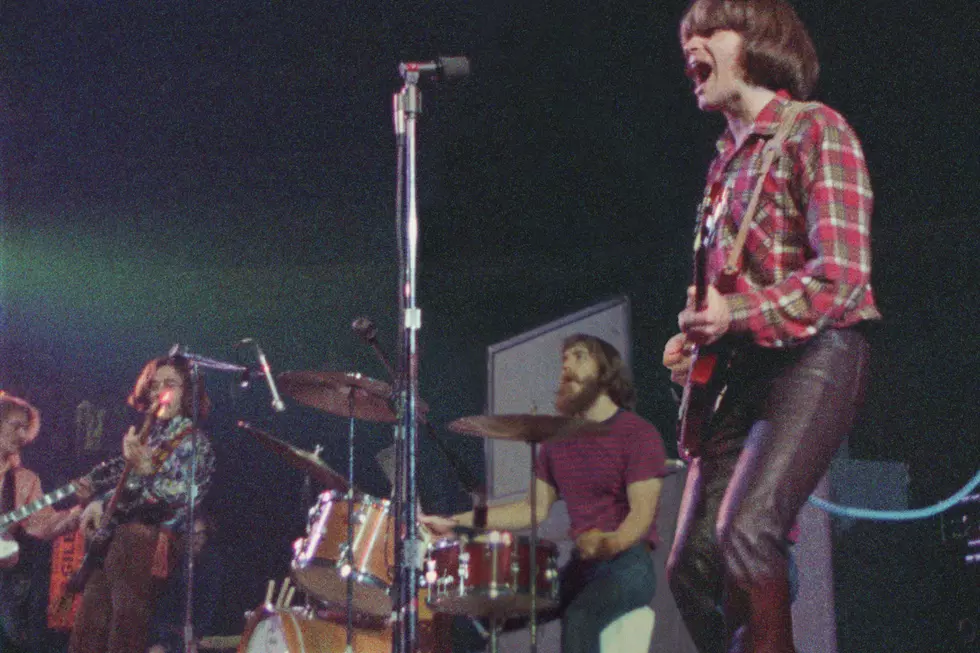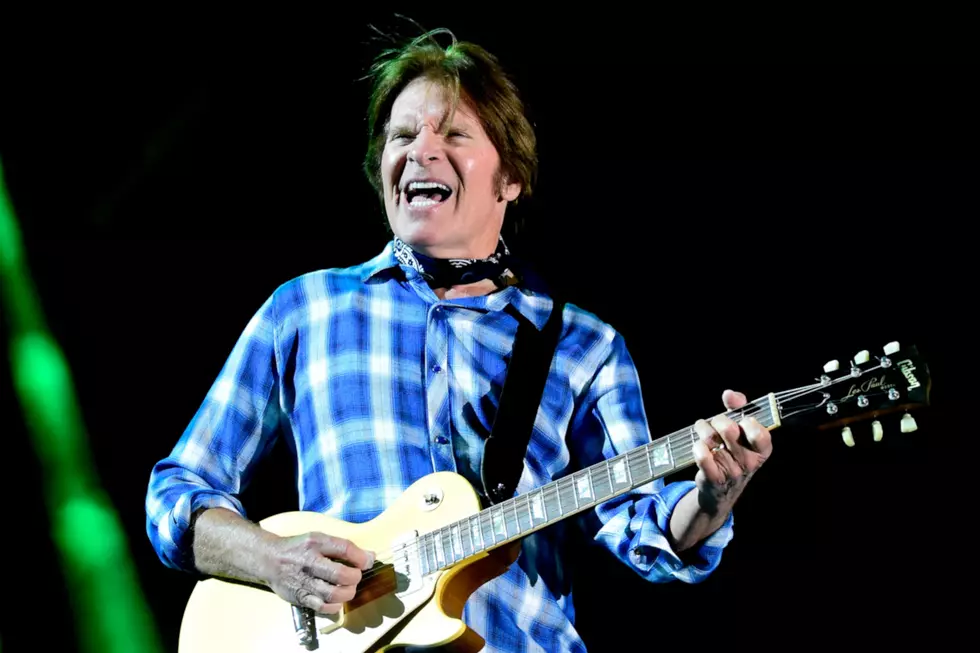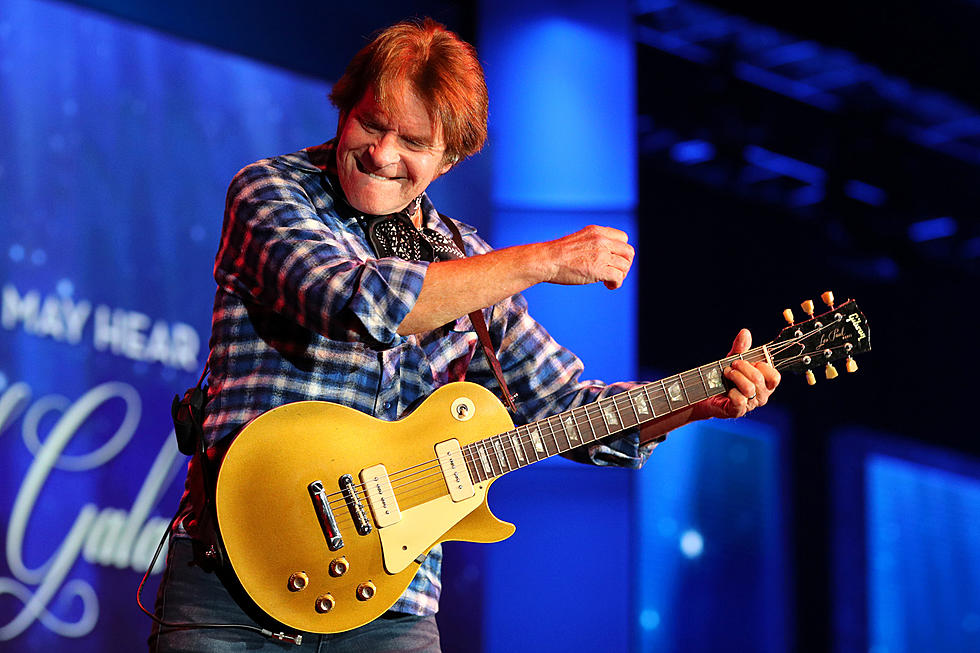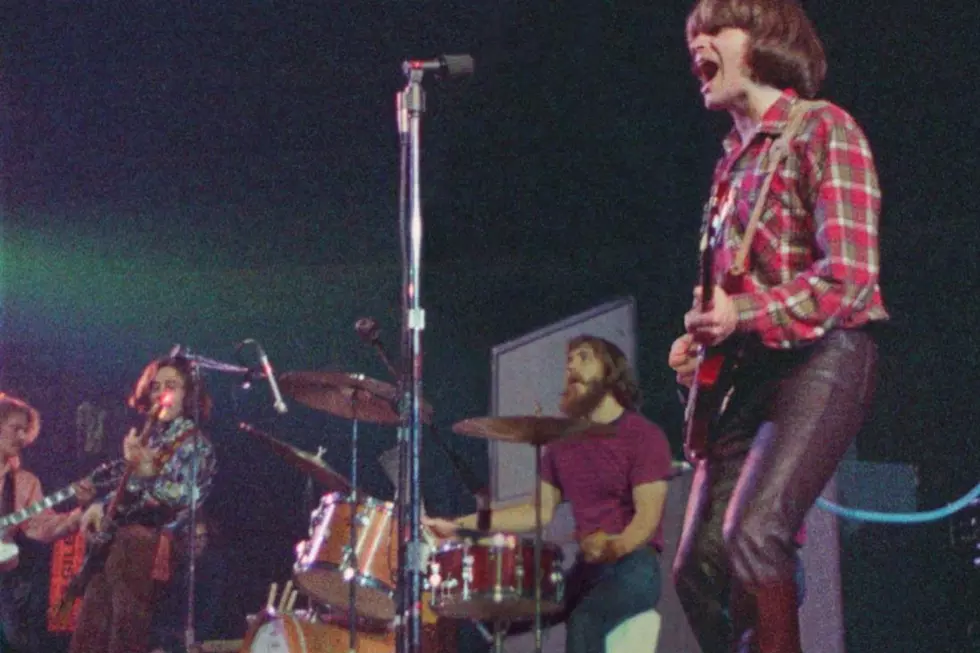
How Creedence Clearwater Revival Took Over the World
Creedence Clearwater Revival was on top of the world in 1970. Their rise to fame included a headlining performance at Woodstock, three Top 10 albums and a string of hit singles among the numerous highlights in the preceding 12 months.
A steady stream of tour dates found Creedence sharing songs with more than a million people by the time they arrived in London for a sold-out performance at the Royal Albert Hall.
"We were in the Beatles' house," drummer Doug Clifford tells UCR, noting that Creedence Clearwater Revival earned their spot at the legendary concert hall. "We were a four-piece, no-frills band – and the bottom line was in concert, we sounded like we did on our records. I didn't know of any other bands I would go and see that sounded like their records."
Long-lost recordings from the Royal Albert Hall performance surfaced after spending more than 50 years on the shelf. They've now been meticulously restored and fans can hear the concert on Creedence Clearwater Revival at the Royal Albert Hall. An accompanying documentary is also available on Netflix and as part of a box set.
Clifford joined UCR to discuss his memories of the period as well as the state of his relationship with former CCR frontman and songwriter John Fogerty.
Watch Creedence Clearwater Revival Perform 'Fortunate Son' at Royal Albert Hall
The documentary lays out some interesting stuff. I loved hearing that the band spent $2,000 on the first album. I would guess that there were other groups who were spending more than that at the time.
Well, the bottom line was we didn’t have it. We were broke, so what do you do? Saul Zaentz had just bought the label [Fantasy Records], so he was short on cash, I guess. He may have borrowed the two grand, from whom I don’t know – but it was money well spent as it turned out.
The band logged a lot of time working as the Blue Velvets and the Golliwogs before changing the name to Creedence Clearwater Revival. How do you think you all finally found your groove?
We were always trying to get a hit record. The label kept saying, “You have to have a gimmick.” I think we recorded two albums worth of material as the Golliwogs. That was, of course, the gimmick that they wanted. They made us wear the most ridiculous outfits imaginable. It was horrible. There wasn’t 16 track [recording] or even eight tracks. It was a four-track machine that they had at Fantasy – and that’s not exactly accurate. It was a three-track because one of the tracks didn’t work. [Laughs.] So you had to record something and then you’d mix that with another track and put it back in the third slot. That’s how we recorded. At least it gave us an opportunity to try out songs and material. I thought “Fight Fire” was going to be a hit. We all did. It was very disappointing when it didn’t. But we had a lot of disappointments in that 10-year period. We kept at it until finally “Suzie Q” came and got us going.
Listen to Creedence Clearwater Revival's 'Suzie Q'
The documentary points to "Porterville" as an important turning point. What was it about that song?
“It’s been an awful long time since I’ve been home.” It’s a family that’s in trouble with the law and the effect that it had on this kid in the family. It also had a quarter-note feel, which “Suzie Q” had too. I used that on three records. But yeah, it’s kind of that Southern thing: The sheriff is going to come in and take you away. Also, John’s vocal style, that kind of took the vocals away from Tom [Fogerty] and put John in the driver’s seat vocally.
You, Stu Cook and John Fogerty met in junior high school. That's a bond that goes really far back. It seems like it would be hard the way things fell apart with John.
Yeah, it’s super hard. Stu is my best friend. I met him the first day of school in the seventh grade. I was the guy in the back of the class. I was sort of the class clown, and I did all of the emceeing for assemblies and stuff like that and I liked to tell a good joke. I had an arsenal of jokes at my disposal. You know, [the situation with] John, that will never be reconciled. I tried for years to bridge that gap and it just got worse. We communicate through our lawyers, so that’s where that is. Tom, of course, is no longer with us. I loved that guy. He was like my older brother. He should have been. So, that’s where it is. We came together once at a class reunion, and that was actually John who came to Stu and I and said, “Do you want to play a couple of songs?” “What? Really?” We played a couple of songs and then we ended up playing over an hour. I think we might have played at Tom’s wedding too. It’s unfortunate because our dream came true in spades. I mean, my God, what we accomplished was so much more than the actual dream itself. Usually, that’s pretty rare. The good news in all of this is that there’s a great legacy of music that we played and recorded. Congratulations on the songwriting, John Fogerty – but we were with him in the operating room.
What are your main memories of playing Woodstock?
Chaos. [Laughs] We had a long day the day before doing an Andy Williams television special. We got out of L.A. very late and got into the Woodstock mess. It wasn’t all bad, really. Logistically, it was hard. How do we get in here? All of the roads are closed. How do we get our gear in there? Where is our gear? Where’s our crew? You know, those things – but the part that mattered about Woodstock and why it will never happen again like that is that there was true love. That might sound corny, but people were sharing with complete strangers what little they had in the way of food, weed, who knows. People were having fun in cold, wet conditions. The show was flawed because of the weather. Rain is dangerous when there’s mics around, but just to see the people having fun and being kind to each other [was great]. I didn’t see one fight or argument or anything like that. People were really just enjoying themselves and making the most out of a rushed situation in terms of the conditions.
Final Albums: 41 of Rock's Most Memorable Farewells
More From Ultimate Classic Rock









